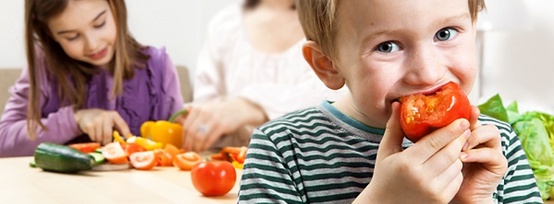It’s sometimes a battle to ensure your children eat healthy meals and try new foods. This can be incredibly stressful for parents and family members, who want nothing more than for their kids to be healthy and well. Food battles can also be stressful for the children waging war, as they work hard to establish new boundaries and assert growing personalities!
Here are some of my ideas, which often come up when I’m talking through mealtimes with parents in clinic. I’d love to hear your tips too!
Avoid battles over meals
While it’s perfectly understandable to feel stressed or anxious if your children won’t eat, they will pick up on this and feel stressed too. Try to avoid threats or force-feeding, as this can lead to fear around mealtimes and further refusal of food. An important part of healthy eating is developing a healthy attitude towards food, without the drama that food battles entail.
Some kids may also refuse to eat if they know it’s an effective way to gain attention. While respecting their appetite and palate is important, continue to offer new foods and encourage them to at least have a taste. They may have to see a food several times, or see other family members eating and enjoying it, before they relax and tuck in.
They simply may not be hungry
Kids go through stages when they are absolutely ravenous and other times when their appetite isn’t as large. And when they’re not hungry, it’s not worth forcing them to eat (unless you’re a fan of tears and tantrums at the table).
Growing independence can reveal challenging personalities!
Particularly as they transition through toddler-hood, little people start to discover that they are independent of their parents and will express their likes and dislikes more strongly. Food, particularly when they feel it’s being forced on them, can bear the brunt of this!
Get kids involved in choosing and making meals
Sometimes children refuse foods because they are unfamiliar with the ingredients and flavours. However, by involving them in the food-choosing process (grown in the garden at home or bought from the market) and meal preparation, they will be more engaged in what they’re eating. This also sets up good habits for the future and encourages the whole family to get involved in healthy eating.
Create an enjoyable environment to eat in
We should act as role models for our kids, including how we approach food and share meals. Eating meals together as often as possible is ideal. Mealtimes can be hectic, but try to keep the atmosphere as relaxed as possible so that this can be an enjoyable time to share (which also helps your digestion). And seriously, do not eat in front of the television.
Keep a relaxed routine
Things don’t always go according to plan, that’s a given, but keeping a relaxed routine will ensure your kids eat good food regularly. This can work in with your schedule (including work, kindy, school, appointments, etc) and their appetite.
Also, as small children tend to have short attention spans try not to make them sit in front of their food for too long, as this can result in them tiring and ultimately refusing food.
Stay positive
On those frustrating, tantrum-y days, take a deep breath and remember it won’t always be like this. Your children are forming opinions on the world based on their experiences, including how they eat and feel about food.
How do you manage feeding time at home? There are a lot of different approaches you can use and, ultimately, it’s about choosing what works best for you and your brood.
If you have any questions around healthy eating and children, come and have a chat to me at Uclinic in Sydney or HealthWise in Brisbane.

